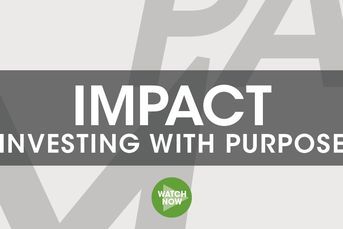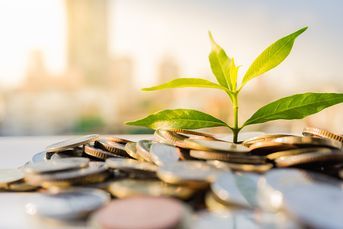Investors’ optimism just keeps climbing
International investors are the most upbeat about the global economy than at any time in almost five years, buoyed by the U.S.-led revival of industrial nations, according to the Bloomberg Global Poll.
International investors are the most upbeat about the global economy than at any time in almost five years, buoyed by the U.S.-led revival of industrial nations, according to the Bloomberg Global Poll.
On the eve of the World Economic Forum’s annual meeting in Davos, Switzerland, 59% of Bloomberg subscribers surveyed last week said the economic outlook is improving. That’s up from 33% in November and marks the most optimistic result since the poll began in July 2009.
Strength in the richest economies was cited as the main reason for confidence by almost two-thirds of the 66% who said they were more positive than a year ago. Even though the S&P 500 has risen about 24% in the past year, more than half of respondents identified stocks as the asset of choice for 2014 as concern about asset bubbles eased.
“Developed countries are playing by far the most important part of the recovery in confidence, in markets and in the economy,” said Wilhelm Schroeder, a poll participant and managing director of Schroeder Equities. “Without doubt, confidence is the single most important determinant for growth.”
The enthusiastic tone is set to be reinforced when more than 2,500 leaders of finance, business and government gather starting tomorrow in the Swiss Alps. The Davos meetings of recent memory have been overshadowed by crises ranging from the recession of 2009 to subsequent fears of a eurozone break-up. Even a year ago, there were qualms about the potential for a fiscal-policy error in the U.S. or a hard landing for China’s economy.
“The mood is most likely better and positive,” said Nouriel Roubini, chairman of Roubini Global Economics, who used the Davos conference of 2007 to warn of impending economic woes. “That reflects the improved strength in the global economy and financial markets.”
The change in mood sees equities favored over fixed income, with 53% of those surveyed — the most since May — saying stocks will offer the best return in the coming year. Just 3% picked bonds and 39% said they would have the worst returns. Real estate was the second most popular bet, with the backing of 16%.
ATTITUDE SHIFT
The poll also underscores the shift in attitude back toward advanced economies, five years since they were roiled by the financial crisis and recession. Now it is the emerging markets, which propped up the world amid the slump, causing concern.
Seventy-two percent of those surveyed said the U.S. economy is improving, up from 53% a year ago. Forty-nine percent said the same of the eurozone, a tripling since last January and the most since the question was first asked in September 2011. Forty-eight percent said Japan is strengthening.
By contrast, just 13% of those surveyed said China’s economy is improving, with 36% saying it is deteriorating, although almost half said it’s stable. On Brazil, 44% said its economy is fading.
China’s slowing economy also emerged as the biggest concern among investors, with a third of those polled identifying it as the world’s major risk, up from 26% in November. Political gridlock in Washington over U.S. fiscal policy, the biggest worry two months ago, was viewed as the main threat by only 8% this time.
“There has been an alarming deceleration in the emerging world,” said Nariman Behravesh, a Davos delegate and chief economist at IHS Inc. He estimates developing economies will contribute the least to global growth this year since 2010.
The rebound in developed economies was rubber-stamped today when the International Monetary Fund raised its forecast for global economic growth this year to 3.7% from the 3.6% it predicted in October.
That’s not stopped managing director Christine Lagarde, who also will be in Davos, from calling the recovery “feeble” and saying global growth remains below its long-term trend of about 4%. She’s also urged policymakers to fight the “ogre” of deflation.
Money looks likely to follow growth, according to the Bloomberg Global Poll. Forty-six percent said the U.S. will be among the most attractive investment destinations this year. Forty percent pointed to the European Union, the most since the question was first asked in October 2009.
WORST OPPORTUNITIES
Thirty-three percent identified Brazil as likely to provide some of the worst opportunities, while 29% named China and 27% Russia.
The increased embracing of risk is fanning some concerns that asset bubbles may build, albeit less so than in November’s survey. Fourteen percent said stocks are in a bubble and 42% said they are approaching one, down from 20% and 45% in November.
Thirty-eight percent said Internet and social-networking stocks are in a bubble, down from 49%. Thirty-five percent said the same of London house prices, a decline from 41%. More than half said Treasuries are not displaying signs of being overvalued.
Some Davos attendees are already worried markets are showing signs of exuberance unjustified by the economic recovery.
“We’re getting a little optimistic,” former U.S. Treasury Secretary Lawrence Summers said Jan. 4. He has warned advanced economies may face a period of “secular stagnation” that even zero interest rates can’t reverse.
(Bloomberg News)
Learn more about reprints and licensing for this article.







